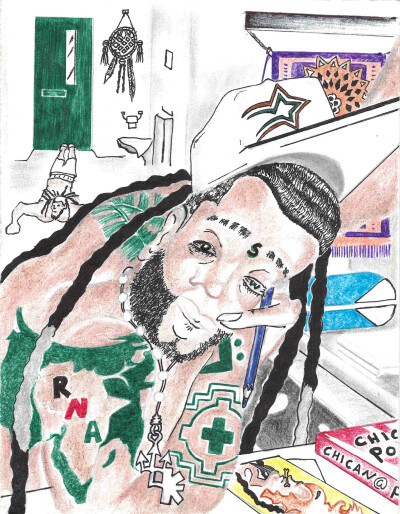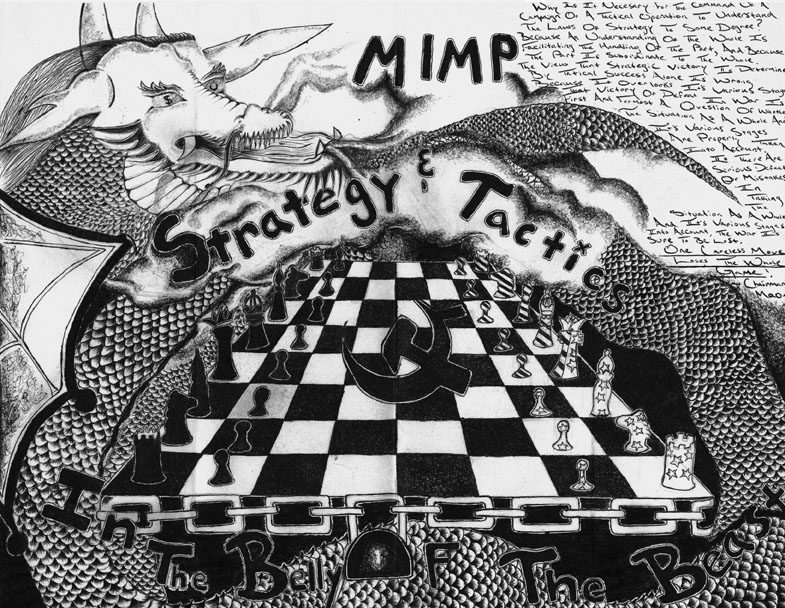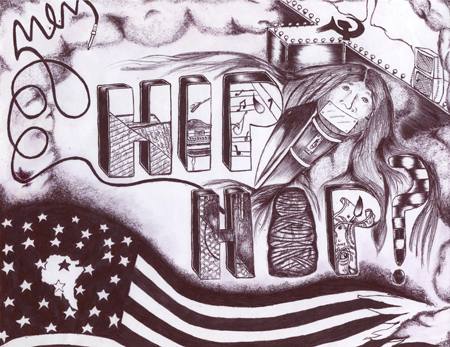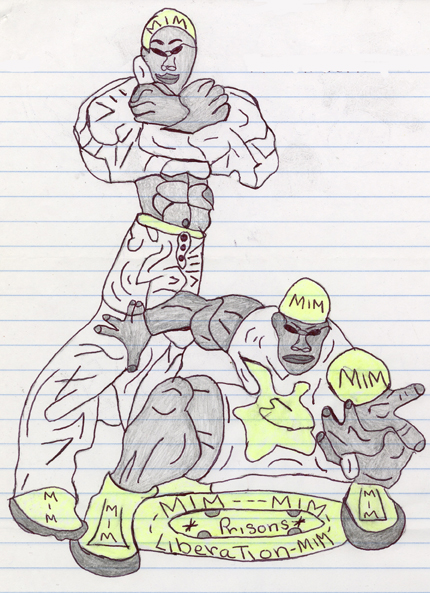
COVID, Global Jubilee, and USW Organizing Amongst First World Lumpen

If there is nothing to be made known of the affects the bourgeois mis-education systems have on oppressed nations and internal semi-colonies within the (un)United State of Amerika, there is one thing that will give truth to power. The U.$. is a police state. The majority of the general public is a cop guard regime, and all parts of amerikan society are affected, and infected, with the virus of police-ism. Popular politics revolve around contest between the identities of so-called classes that don’t even relate itself to the revolutionary workers and exploited labourer of the internationalist proletariat.
The common theme of the COVID-19 era has been, big ups to the frontline workers, and first responders. But it shows how little resistance there is for the bourgeoisie news and social media, non-truths trend on instagram and snapchat while those who are truly exploited – from the prison population to the homeless and migrant labourer populations, the disenfranchised are steady marginalized into social sub-sects of the lumpen-proletariat. It sucks having little determination of one’s national independence. The oppressor nation has the power to Jedi mind trick its internal populations into accepting ideas of itself as suffering classes deserving of priority in the distribution of natural resources, while semi-colonies die the slow painful death. The U.$. has been sick long before the rise of COVID-19 imperialist world order.
Many on the liberal leftist side of Turtle Island remain hopeful of a sudden shift in the exploiters justice system, and the economical maneuvering of the petty bourgeoisie to redistribute wealth and punishment in equality. Thing is hopefulness is unlogical in circumstances that requires skepticism. It’s as critical as Vietnam, the draft and Muhammad Ali, refusing to attend the appointment with jungles of the Asian continent in the Amerikkkan draft. Chances are, most of those within the internal semi-colonies of these United $nakes, with the least to lose in breaking with the exploiter nation, they will be drowned out by the noise campaigns of dress-up revolutionaries, culture vultures, and agent provocateurs. The last being the most dangerous to nationalist leaders of the First World Lumpen amongst Turtle Island’s internationalist Maoist modeled groups.
Kicking New Afrikan Internationalist Principles as a USW Leader
The bourgeois nationalists are able to quote the phrases of classical revolutionary leaders and anti-imperialists but their necessities for true internationalism is just a metamorphisized lesser form of activism; never truly the form of Marxism-Leninism-Maoism. As the U.$ofA imperialist and parasitic capitalist are brutally proliferating, the lies of the petty bourgeoisie are spread. These lies have become a sort of plague that infects the minds of our youth de-socialized as First World lumpen (FWL). True works of revolutionary nationalist culture are suppressed. Today’s youth (including many FWL) run to the bourgeois nationalist for education, and these ideas of reactionary, watered-down nationalist politics of New Afrikan and Aztlán liberation, with political jargon by Liberals’ approach to revolutionary action for national liberation.
Subjugation, colonialism and neo-colonialism is the cause of certain lack of knowledge. Then, with social media acting as the death alter, sacrificing one’s youth to do something the world SEES, these so-called nationalist and internationalists become inept, specifically when it come time for true actions to spring forth from the FWL. Yet, there’s a pattern throughout history for this. We see these individuals protesting against certain injustices, but is it truly Revolutionary Suicide? Does it liberate all beings subjugated?
Dialectical materialism is a concept that We’ve adapted to due to Maoist Internationalist form of thinking. One must know how to formulate a purpose of an ideology-movement. Once we’ve compared all past actions of national liberation, next we take revolutionary action. But how does the youth of today know the works of Marxism-Leninism-Maoism, when their grandparents and parents were fed misinformation about liberation? We leave the youth no militant alternative but to turn to bourgeois nationalism. These individuals that speak of half revolutionary truths. They know the path of liberation, and what it will take to end oppression in the world, but in their actions of so-called change these bourgeois nationalist only aim to reform policies of subjugation. It’s like asking to desegregate a school, but there’s still white/black, girl/boy bathrooms, separating the ethnic groups of that school. We only enable police policies, which aim to further the impression of anti-socialism, capitalist-imperialistic psychology, determined psychology because of how police-ism has become a philosophy that has instinctively mingled with the psyche of certain amerikans, and as now the psychology of most amerikans, including Blacks, Chican@, Asians and First Nations.
#BLM/Black Lives Matter is an agenda that has attracted many followers. But everything that is a trend has attracted many followers. Just follow social media within the exploiter nation USA.com. The Republic of New Afrika and Aztlán need to realize that if we continue to separate the oppressed into subject classes and ethnic groups, their nations will forever be tools of bourgeois nationalists.
These systems of oppression were constructed in the exploiter nations constitution, a constitution bent on enslaving half of its population and disenfranchising the rest into minorities. Bourgeois nationalists disguised as bi-racial issue organizing groups. Protest that life or these lives matter, but lets argue the case why the BLM agenda screams Black Lives Matter, when more Blacks murder each other than so-called police do year round? Though pigs murder of so-called black men and women and children should be an issue addressed, it shouldn’t just be as one particular race or class, when race doesn’t exist to be national requirement of liberation and class struggle doesn’t really exist. The majority of Amerikan society are cops, what’s there to struggle over?
Take for example in other nations, like Palestine or Somalia, where it is known there’s a military presence by the U$ofA Africom and other oppressor nations, are all oppressing these independent national struggles that are less armed than the colonialist military settlers. The Liberal left of the U.$. scream pro-choice but in turn dictate to Third World womyn what they can or cannot do with their bodies. How is this pro-choice?? This is dividing the oppressed nations. And don’t mention the sterilization methods of U.$. state prisons, used against female prisoners to destroy reproductive powers of social rejects.
When FWL proletariat eradicate the pig system of abuse and instead begin building platforms to proliferate the ideas of MIM, nationalist organizers amongst lumpen organizations will have the voice of the people in the revolutionary objective.
With practical application of class disturbance, integration with the masses, and rigorous international study of Maoist theory, relevant to revolutionary history, with understanding of the nature of fighting and serving the people economically, we’ll address the flow of wealth that exploiters use to control world-wide populations.
Serving the oppressed in the First World, amongst the First Nation semi-colonies, tribes and lumpen organizations, means to eradicate super-exploiter systems and bourgeois nationalist personalities who advocate for said exploiting Amerikans. They won’t accept responsibility in the crimes against First Nation populations. They will hide and advocate increased police-ism reform vs. defund city council and police unions satisfying their guilty conscious with exploitation by the lesser of two evils.
Reformist and revisionist Black Lives Matter nationalists need to take their method of study and use it to shapeshift into an ideology, or philosophy that leads to MIM. These must become the FWL youths’ alternatives to ushering in a socialist revolution.
Global Jubilee and Reparations to Africans in CA, USA
In the United $tates of Amerikkka, Black New Afrikan George Floyd has their face plastered across the walls of convenience stores within the territories of occupied Dakota, Aztlán, New Afrika, and Makesh. But the true question is what will it take to unite the multitudes of FWL that lumpen leaders like G. Floyd mentored?
The pop culture of police-ism disguised as socialist nation building must be struggled against. Using the unity of fact checking and scientific decision making, leaders strengthen national resources like the independent institutions of learning, healthcare, labor, housing and entertainment. Not to fall into the politrix of revisionist co-opting for a lesser slice of servitude.
As USA.com states like California are manufacturing legislative measures like the African-American Reparations Bill to wave liability of wrongs committed against indentured servants/slave laborers of the Afrikan diaspora. There will be no reconciliations between New Afrikans and the oppressor nation pig regimes, unless the pigs swallow the cliff edge of the square they so gladly occupy. In by none but armed struggle will national reparations for all of New Afrika be possible, including We imprisoned.
The death rate of oppressed nation prisoners, a number that is still hidden from us, is part of what classifies them as semi-colonies, members of the lumpen proletariat by the political targeting of cop patrols disguised as social welfare workers. The fact remains the same prisoners exposed to COVID-19 suffer physical attacks form the cop union. The only way to mediate the national contradiction is to arm the prisoners re-entering society with a distrust for integration with a system that has deliberately exposed them to a terminal disease.
National liberation for fighters in the First World must materialize into stronger leanings towards the culture of anti-police-ism, struggling against increased police occupation of internal semi-colonies disguised as national liberation healthcare relief or economic rescue plans. It’s a trap, B. Don’t eat the swine of the captors, invaders from the petty bourgeoisie. None of what the pig state offers will appreciate in time. The military presence of the U.$. army brigades and national guard’s COVID welfare systems are surely signs of the time.
Be mindful, stay watching and prepare to fight! Uhuru Sasa!!!










